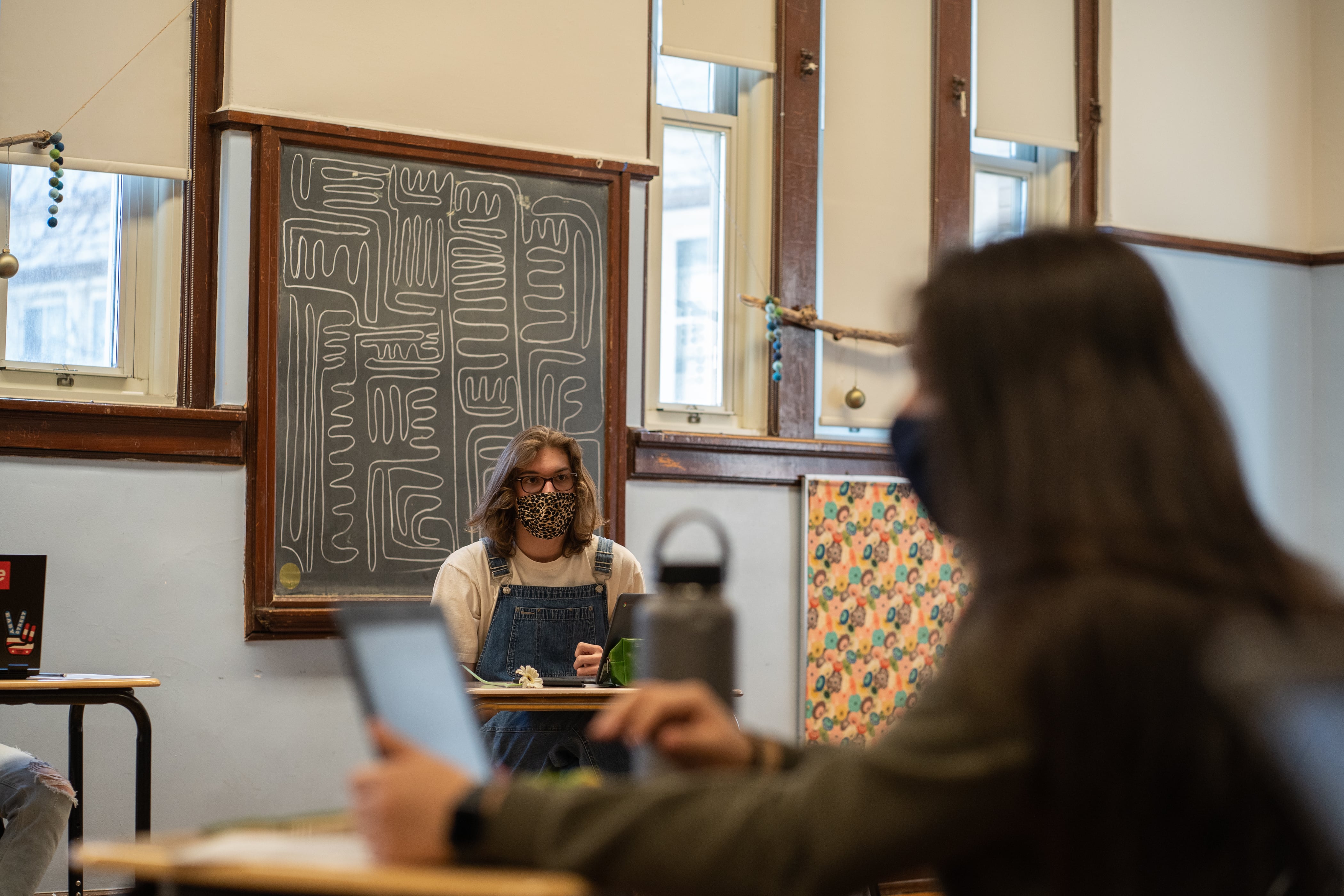With less than two weeks left before the school year starts, negotiations between Chicago Public Schools and the Chicago Teachers Union are stalled. But whether or not the two groups can negotiate a reopening deal, teachers will still return to classrooms for the first day of school on Aug. 30, CTU president Jesse Sharkey said at a Wednesday press conference.
“We’re going into the school year, but we’re going into it without the safety provisions that would give us the confidence that we really feel like we need,” Sharkey said. “So we’re going to continue fighting.”
The union this summer has pressed the district to grow its vaccination program, expand social distancing guidelines from three feet back to six feet, clarify rules for student testing, and increase testing availability. The union also wants metrics for pandemic spread that would trigger school closures, among other safety measures to protect against the highly contagious delta variant.
In a statement, CPS spokesperson James Gherardi called the CTU’s demands “unscientific” and said the district is committed to the “health and safety of our students and staff.”
“All of the district’s health and safety protocols are in alignment with the health and safety guidelines recommended by the CDC, IDPH and CDPH, and in some cases go beyond them,” Gherardi said.
Nearly all CPS students will return to full-time in-person learning this fall, in line with a state board of education resolution. The district is offering a Virtual Academy for students with specific medical conditions, but signups are low, in part due to a lack of communication about the Virtual Academy’s setup. Some parents are organizing to advocate for expanded remote learning options, but the district has doubled down on its plan to limit virtual learning.
Chicago Department of Public Health commissioner Allison Arwady insisted last week that it is safe for students to return to classrooms, even as the city’s case count hits its highest level in months, most recently seeing a 4.5% positivity rate and 444 daily confirmed cases.
Chicago last Friday announced that all Board of Education employees who don’t have a medical exception must be fully vaccinated by Oct. 15 or be ineligible for work until they submit proof of inoculation or exemption. The CTU said that it welcomed the mandate and urged the district to commit to additional safety and recovery measures before schools reopen. The district has also committed to universal masking in school buildings and three feet of social distancing whenever possible.
Previous efforts to reach pandemic reopening deals have brought the district and the union to heated stalemates before.
Tense negotiations between the union and the district stretched for weeks last winter, delaying reopening for elementary and middle schoolers and establishing what experts called the most detailed, comprehensive framework for reopening nationally.
Teachers also refused to report to classrooms for two days in April before reaching a high school reopening deal that included a student vaccination plan, limits on the amount of time students spent in-person at the district’s biggest high schools, and accommodations for staff members who are medically unable to work in person or are caregivers for at-risk relatives.
But right now, teachers aren’t gearing up for an action that would delay the start of school, Sharkey said.
“If this winds up being a runaway surge where people are getting sick, being hospitalized, and dying … we’re not going to simply sit there and participate in mass spreader events inside of our schools,” he said. “We will take action before that happens.”





